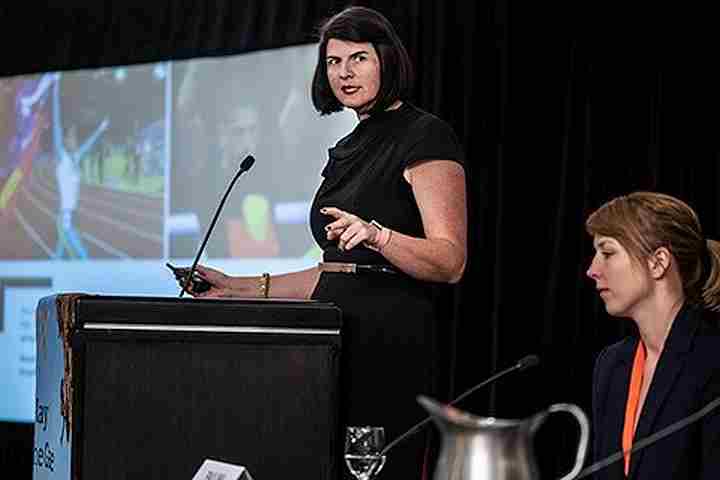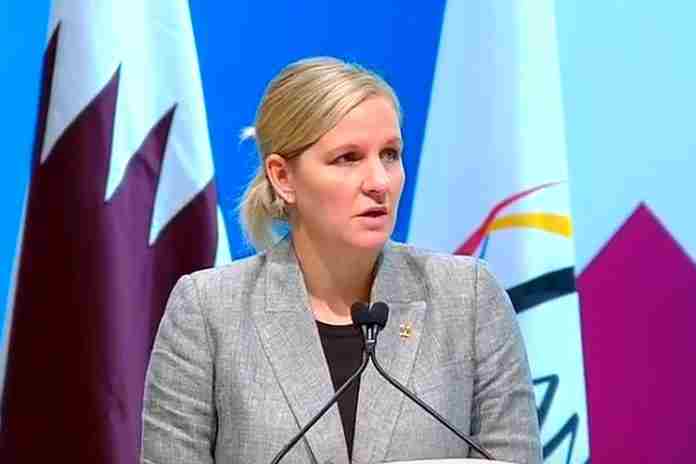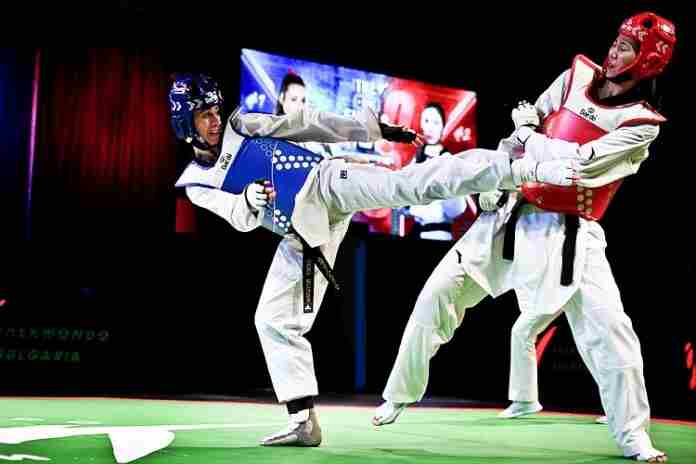 The question of “athlete’s rights” is a hot topic in the Olympic Movement, just as it is in other sports, but it is being more clearly contested in the Olympic sphere.
The question of “athlete’s rights” is a hot topic in the Olympic Movement, just as it is in other sports, but it is being more clearly contested in the Olympic sphere.
This was shown dramatically last week with two events going on at the same time with very different agendas and very different views:
● XXIV Association of National Olympic Committees (ANOC) General Assembly in Doha (QAT), with about 1,000 representatives of 204 National Olympic Committees
● Play The Game 2019, the 11th world communication conference on sport and society, held in Colorado Springs, Colorado (USA), the first time held outside of Europe.
The ANOC Conference had a lengthy agenda, dealing significantly with future major events including the 2020 Olympic Games in Tokyo, 2022 Winter Games in Beijing, among others. But one segment was devoted to athlete issues and featured Kirsty Coventry of Zimbabwe, an IOC member since 2013 and the head of the IOC Athletes’ Commission.
Her talk (starting about 2:24) went into some depth about the IOC’s Athlete365 program, outcomes from the IOC’s International Athletes Forum held last May and the upcoming IF Forum to be held from 28-30 October. She noted that 8,428 athletes have joined in on the Athlete365 program, as well as 2,319 support staff, including coaches.
She also shared comments on the question of Olympic Charter rule 50.2, which states that “No kind of demonstration or political, religious or racial propaganda is permitted in any Olympic sites, venues or other areas.”
This has become a hot topic thanks to two such actions at the 2019 Pan American Games in Lima, where (1) American fencer Race Imboden took a knee during the medal ceremony for the men’s Team Foil, during the playing of the U.S. anthem, and (2) hammer thrower Gwen Berry raised her right fist during her medal ceremony, reminiscent of the 1968 podium protest of Americans Tommie Smith and John Carlos after the men’s 200 m final.
Both Imboden and Berry were placed on probation by the U.S. Olympic and Paralympic Committee for their actions, which broke with their signed agreement not to do so when agreeing to be part of the U.S. team at the Pan Am Games.
So now the topic is open for discussion.
IOC President Thomas Bach, in his keynote address to the ANOC General Assembly, sounded the IOC’s position, couched in terms of unity:
“If we do not all follow the same World Anti-Doping Code, we have no fair competition. If we are not all following the same Code of Ethics – the IOC Code of Ethics which is part of the Olympic Charter – we have no credibility anymore. If we are not following everything in the same way, Rule 40 or Rule 50, or if we do not follow an agreement on the format of the Olympic Games, or in many stipulations, then we are not a united community anymore and then we cannot achieve universality anymore, if we would have to make special rules for special needs of special organisations or special interests.”
Coventry’s presentation expounded on the Rule 50 issue with demonstrations:
“We felt it really important to lead this conversation and reach out to our athletes across the world, and we did that through different forms of communication, and most recently we held a call with Global Athlete network [of Athlete Commissions of National Olympic Committees].
“We had more than 60 Athlete Commissions represented on that call and there was a very strong feeling amongst all of those athletes that the venues, the Olympic spirit and the uniqueness of the Games needs to be respected, and that there is a time and a place for athletes to be able to make their voices heard with different opinions or different topics that they might want to bring awareness to, but no one on the call felt that that should be on the field of play or during a Olympic medal ceremony, and I thought that was really very special.
“To hear other athletes from around the world talking about the uniqueness of the Games, having respect for each other and that just showed the power of the Olympic Movement, and that it’s something we need to protect and, so, what we have since done from that call and from the guidance of those athlete commissions and of those representatives on the call, is now we’re working together to put together some guidelines around the rules, around being able to explain very clearly to athletes where we would like there to be this respect followed through and to keep specific venues and medal ceremonies” away from demonstrations.
(The online video skipped and did not include Coventry’s remarks after the end of her quotation above.)
In a posted summary of this call with the Athlete Commission reps, Coventry noted that “The IOC AC is drafting guidelines for athletes competing at the Olympic Games with regard to where athletes have an opportunity to share their views and where is not appropriate.”
At the Play the Game conference, a session called “Athlete activism: defending the right to protest” was held and Nikki Dryden, a two-time Canadian Olympian in swimming and now a lawyer in New York spoke to directly to the Olympic Charter rule. The session summary noted:

“Dryden called for an overhaul of the Olympic Charter’s Rule 50.2, which outlaws demonstrations or ‘propaganda’ in Olympic sites or venues. ‘Explicit support for freedom of speech should be contained in the Olympic Charter,’ Dryden said ‘Freedom of expression and assembly are generally-accepted norms in democratic nations and the international community. The Olympic ideals sound like they should protect these rights. But Rule 50.2 prevents freedom of expression.’”
However, another speaker suggested there are limits:
“Margaret MacNeill, Associate Professor at the University of Toronto, said that the changing role of the media has affected how athlete activism is expressed. Athletes are seen as a commodity,” she told Play the Game 2019. ‘Athletes sign away their right to free expression by agreeing to social media guidelines. Tweets can trigger lawsuits.’ While the emergence of new digital media brings many challenges related to athletes’ rights, she said, it also brings new opportunities for the establishment of athlete-owned media.
“MacNeill was then asked whether any limits should be placed on athletes’ freedom of expression and right to protest. ‘There are limitations on free speech,’ she said ‘Hate speech.’ ‘The right to free expression comes with responsibilities.’”
Who has it right?
There are those who are hardly impressed by the IOC’s position or by Coventry and the “Athlete Commissions” that she cites. But the IOC Athletes’ Commission is elected by athletes themselves at each Olympic or Winter Games and that’s the group that will be writing the new Rule 50 guidelines. And Coventry herself is not to be underestimated, either for her seven Olympic medals in swimming in 2004-08, or in her current position as the Minister of Youth, Sport, Arts and Recreation in Zimbabwe, since September 2018.
And the proponents of free speech at the Play the Game conference hit themselves in the head, as Dryden noted correctly that “Freedom of expression and assembly are generally-accepted norms in democratic nations and the international community.” How does that work with a third of governments worldwide governments are considered “authoritarian” and a quarter are “hybrids” of democratic and authoritarian rule – that’s 92 of 167 or 55% nations worldwide according to the 2018 Democracy Index (more here).
Looking at the Index, the “international community” cited by Dryden is mostly limited to North America, some parts of Latin American and the Caribbean and Western Europe. What about the rest of the world?
As with so many issues that divide the world, countries, cities and neighbors in our complex world today, neither the IOC nor the Play the Game delegates appear ready for some kind of agreement. The next chapter will come with the issuance of the IOC Athletes’ Commission guidelines; stay tuned, but have no doubt that both sides are gearing up for the possibilities in Tokyo.
Rich Perelman
Editor
If you enjoyed this commentary, sign up to receive our exclusive TSX Report by e-mail by clicking here. You can also refer a friend by clicking here.



























